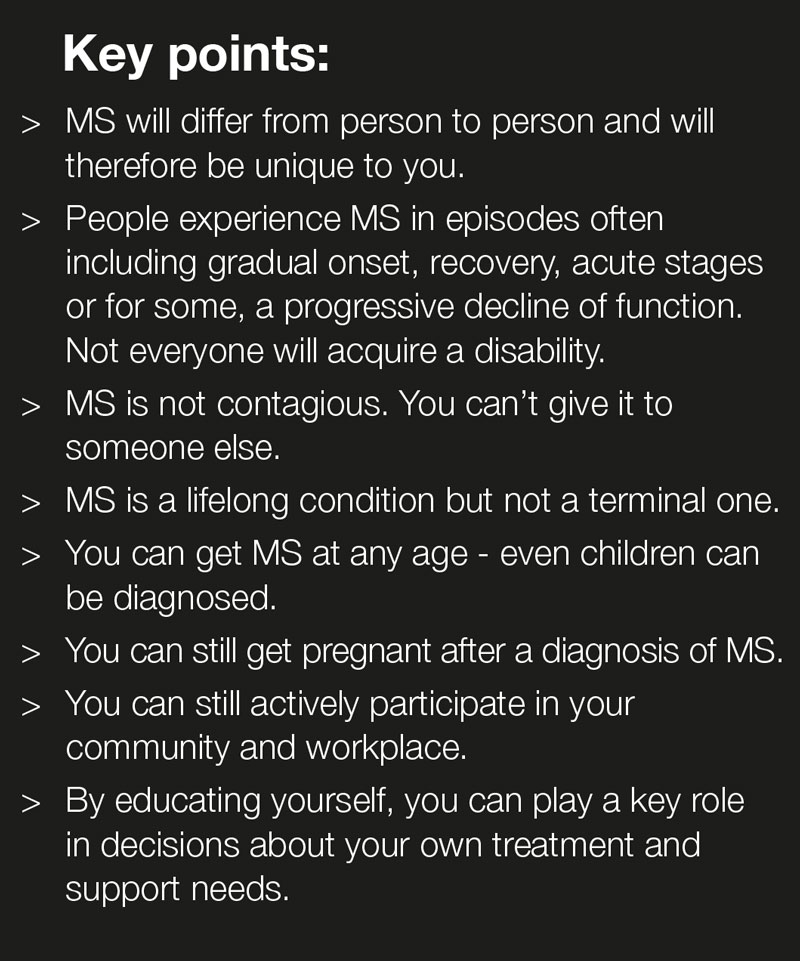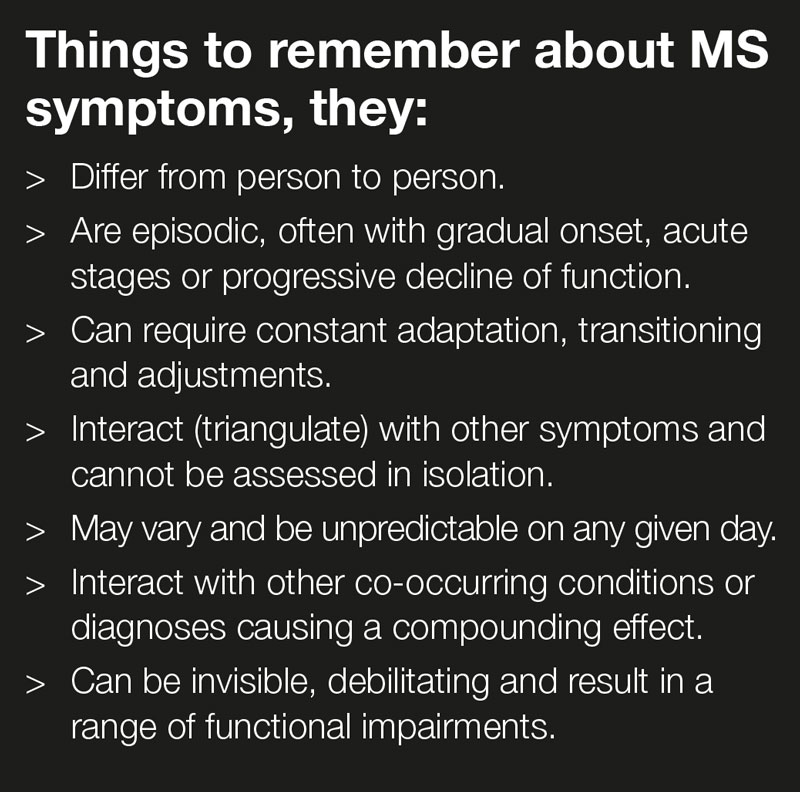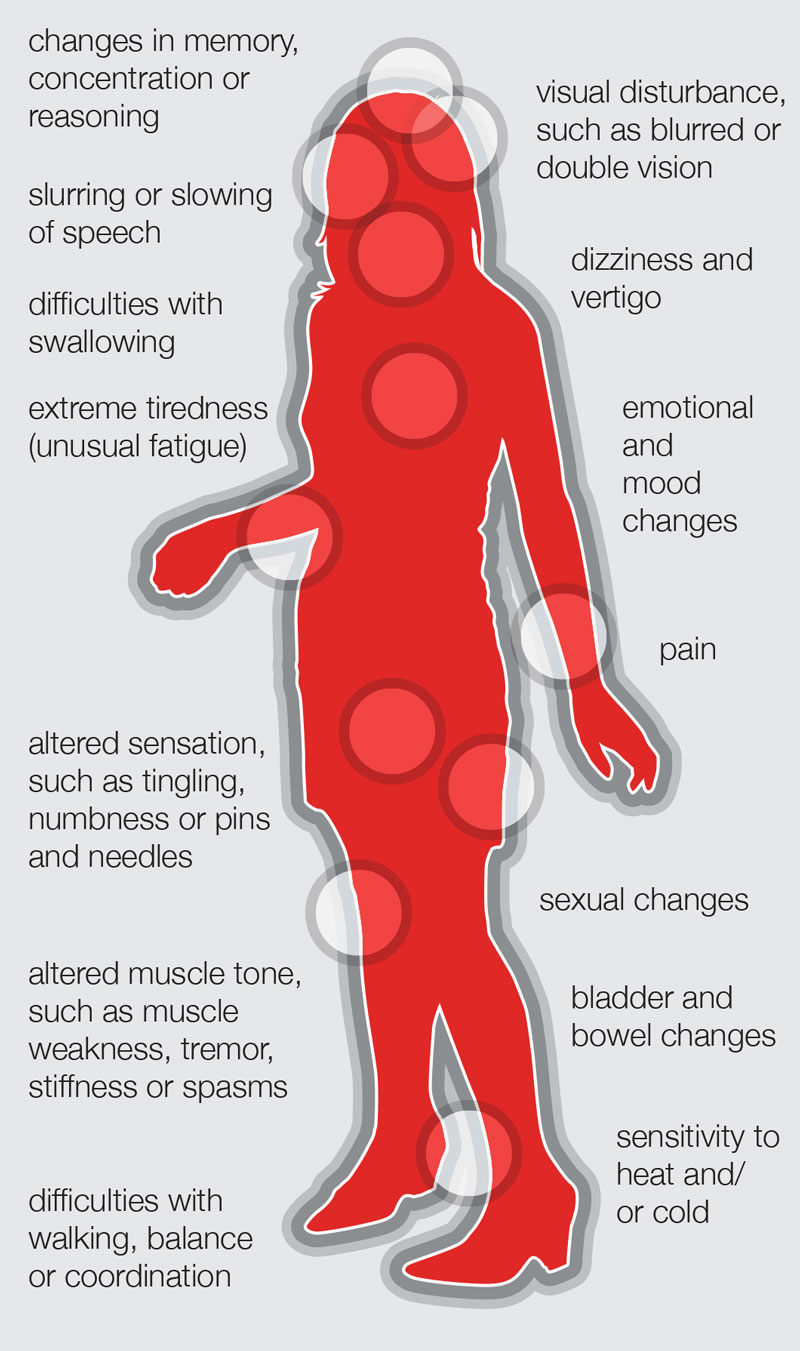Multiple Sclerosis (MS) is an incurable, chronic disease affecting the Central Nervous System (CNS) in which the body’s own immune system mistakenly attacks and damages the fatty material – called myelin – around the nerves.
Because this damage can occur anywhere in the CNS, people with MS can experience a wide range of symptoms, unique to them, and can be affected differently at various stages in their life.
MS affects over 25,600 in Australia with more than two million diagnosed worldwide. Most people are diagnosed between the ages of 20-40, but it can affect younger and older people too. Roughly three times as many women have MS as men.
Video: National Advocate and writer, Astrid Edwards, along with MSA CEO, Deidre Mackechnie, speaks about World MS Day and Astrid’s experiences living with MS, with Virginia Trioli and Paul Kennedy on ABC News Breakfast.

What are the symptoms?
No two cases of MS are the same. Symptoms, depending on where lesions develop on the brain and spinal cord, can manifest in many different ways. Your symptoms may vary from day-to-day. Symptoms can also interact with each other.
Video: Invisible symptoms of multiple sclerosis – MS Australia

Common symptoms of MS
The symptoms of MS can be both visible and invisible to others, are unpredictable and vary from person to person and from time to time in the same person. They may include:

Why do people get MS?
There is no single cause of MS; however, studies have found a complex interaction between genetic susceptibility, environmental and lifestyle factors.
Genetics: MS is not, strictly speaking, a genetic or a hereditary condition and the majority of people who develop MS have no previous family history of the condition. If you have MS, it is by no means definite that your children will develop MS. Several genes (over 200) are believed to play a role in MS but they will only increase susceptibility to MS in combination with other environmental factors. Some research has also looked into the possibility that MS may be more prevalent in certain ethnic groups. Although MS appears to be more common in those considered Caucasian, it is not certain if this is linked to greater access to health services to identify and diagnose MS.22
Infection: A variety of viruses have been linked to MS, including Epstein-Barr (EBV), the virus that causes infectious mononucleosis (glandular fever). There appears to be some type of immune response triggered that predisposes someone to MS, rather than the EBV itself. By the time someone reaches adulthood, most people within the population have been exposed to this infection so on its own, it does not necessarily lead to or cause MS.
Geographic location: MS is found to be more common in areas farthest from the equator, referred to as the latitudinal effect. However, prevalence rates may differ significantly among groups living in the same geographic area regardless of distance from the equator. In Australia, those living in northern Queensland are 2 times less likely to develop MS than those in Tasmania. The reasons behind this are still unclear, however, there is a possible link to exposure to ultraviolet (UV) radiation which diminishes as you move further away from the equator. Research into this possibility has focused on the migration of people away from the equator to see if there might be an increased risk of developing MS. Ultraviolet light is known to have a number of impacts on the human body, including our immune system and plays a key role in the synthesis of vitamin D.23
Vitamin D: Numerous research studies have seen a correlation between Vitamin D levels and MS. Most of the vitamin D we need is made in our body in response to sunlight through exposure to UV radiation. Low levels of Vitamin D relate to an increased risk of developing MS, as well as negatively impacting on disease activity. The benefits of Vitamin D supplementation is an ongoing topic for scientific investigation.24
Smoking: It has been clearly shown that smoking significantly increases your chances of developing MS. Smokers, and people exposed to second-hand smoke, are almost two times more likely to develop MS and more likely to develop progressive forms of MS.
The relationship between environmental, genetic and lifestyle factors are complex in determining who develops MS. But it is clear that MS is caused by early exposure to some environmental triggers in people who are genetically susceptible.
Source: MS QLD, Understanding Multiple Sclerosis – an introductory guideline.






























